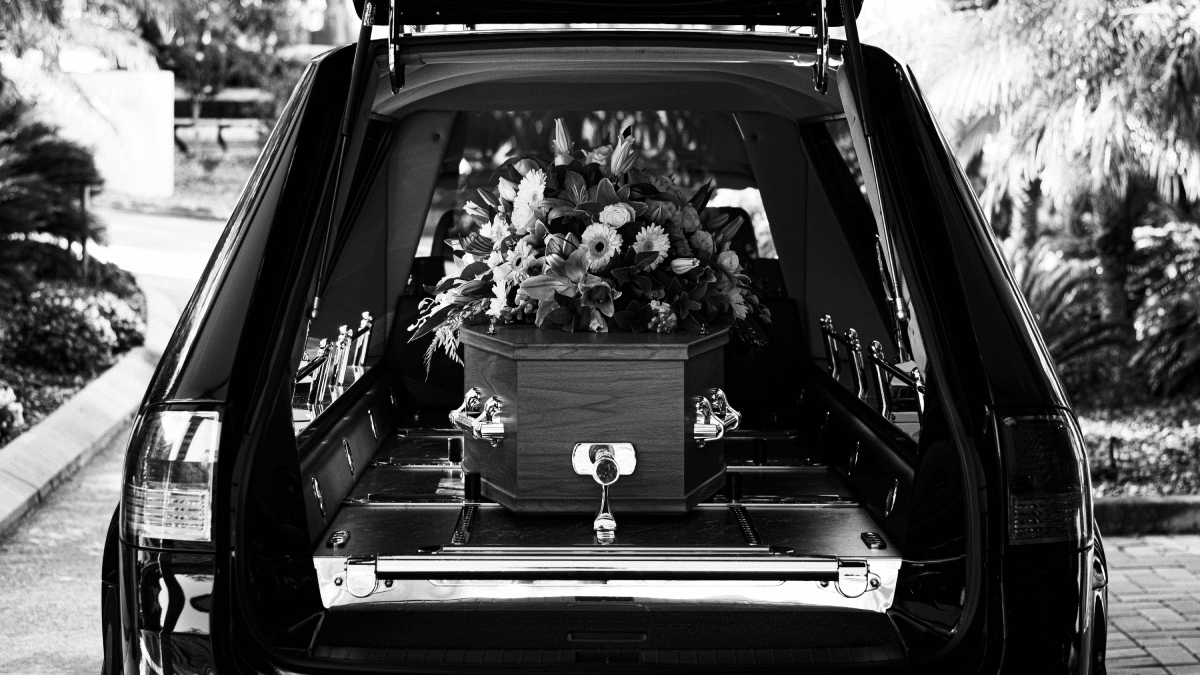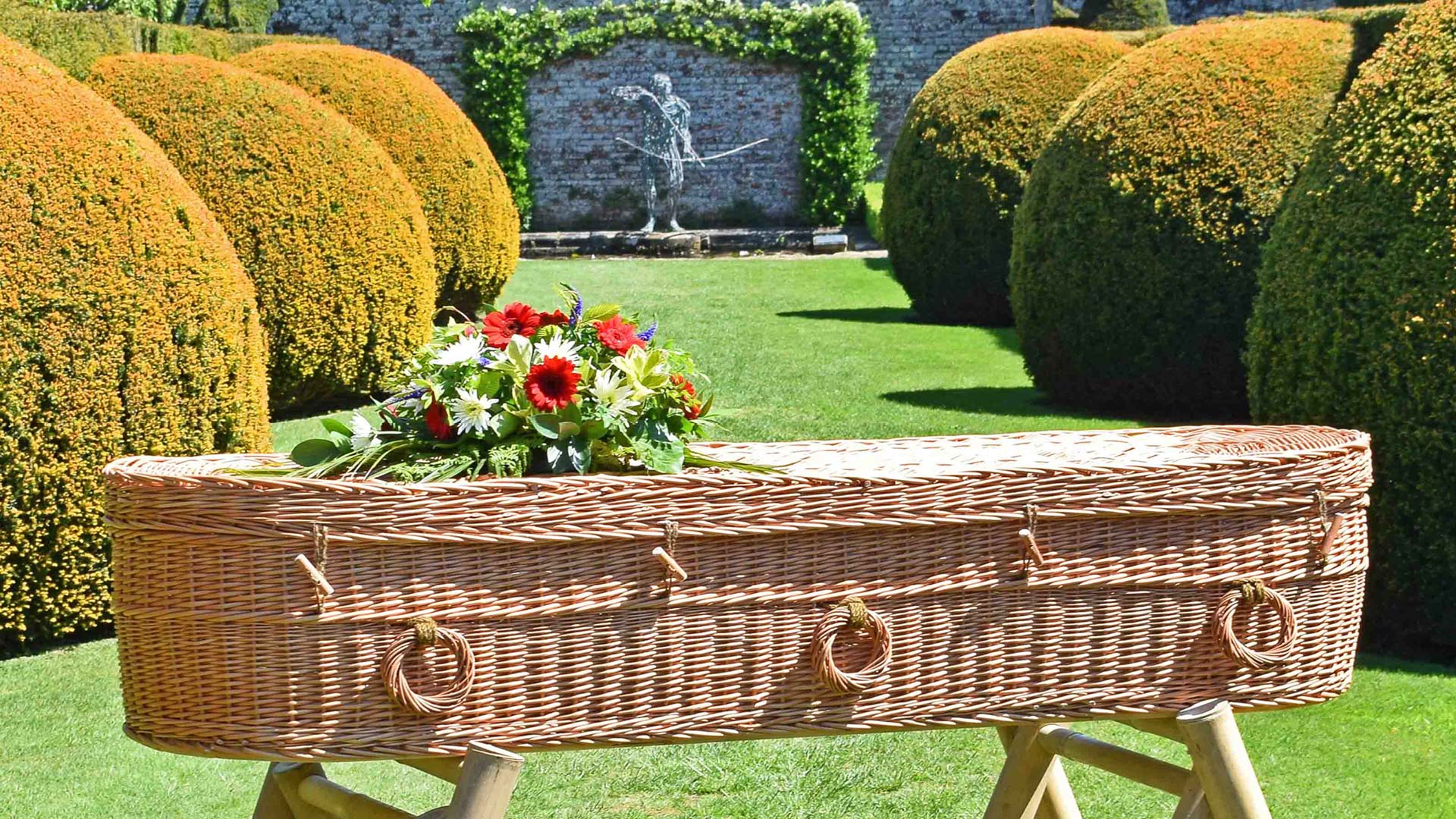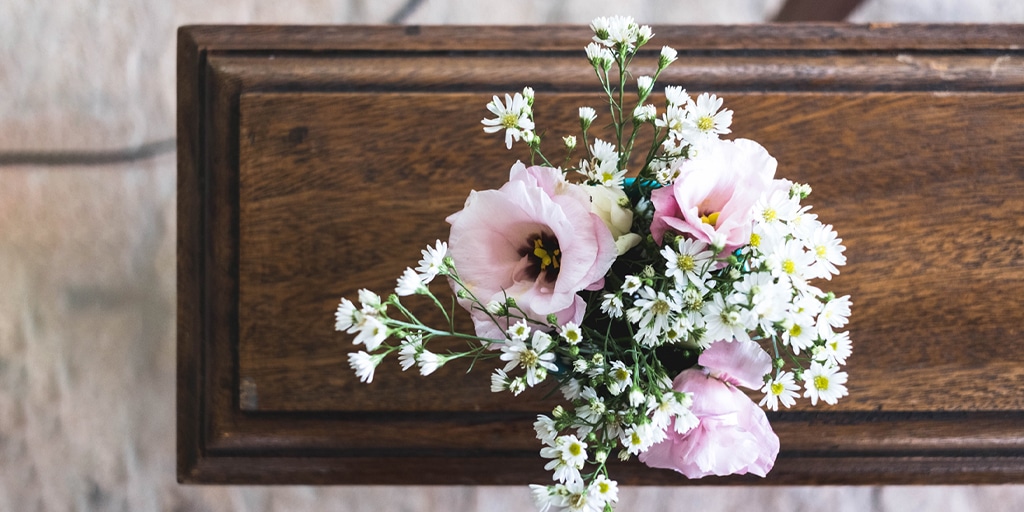
For anyone passionate about environmental issues, you may be wondering how to arrange a more sustainable and eco-conscious funeral. Although green funerals are on the rise in the UK, there are many ways to arrange a more traditional funeral whilst limiting the harm caused to the environment. In this blog we’ll discuss some of the ways you can make a traditional funeral more environmentally friendly.
Burial or cremation?
You may be asking yourself whether cremation or burial is bad for the environment, and the short answer is that both of them have their benefits and downsides with regards to their environmental impact. It’s important for you to choose the method that feels right for you. For anyone looking to make eco friendly choices, there are some important things to consider…
Cremations
Cremation is a very popular choice in the UK, however the cremation process isn’t energy-efficient and releases large amounts of CO2 into the environment. However once the cremation has taken place, a person’s ashes won’t cause any environmental harm and can be scattered or buried without concern. If you intend on burying a loved one’s ashes opt for a biodegradable urn, or alternatively plant a tree over their grave. It’s also worth noting that burying ashes takes up much less space than a coffin, which has its environmental benefits.
Burials
Although coffins take up more ground space than cremated remains, burials are generally considered more environmentally friendly than cremations. This is because burials allow for natural processes to take effect and minimise the impact on the surrounding environment. However, it’s important to note that not all burials are eco friendly, and depending on the materials used for the coffin, and whether a person has been embalmed, will affect how much environmental impact a burial will have. Burials at a natural burial ground are by far the most eco friendly option – as well as using a biodegradable coffin, embalming is avoided, and a tree is planted at the gravesite in place of a headstone.
The Coffin
One of the best ways to ensure a funeral is eco friendly is in the choice of coffin. There are many different types of coffins to choose from, and some are much better for the environment than others.
Wood
Although wood veneer coffins are a popular choice for traditional funerals, it’s important to consider the type of wood being used and what the veneer is made of. Choosing a coffin that is made out of reclaimed or sustainably sourced wood, that hasn’t been lacquered or veneered, is the best way to ensure the coffin is eco friendly. If you would like a wood veneer coffin then opt for one that is made of recycled wood and which uses a water-based lacquer instead of a solvent-based one.
Biodegradable Coffins
In addition to wood, choosing a fully biodegradable coffin ensures nothing is left behind in the ground. There are many biodegradable materials to choose from, including bamboo, sea grass, wool, cardboard, willow, banana leaf, pandanus and water hyacinth. Willow is a particularly popular choice for biodegradable coffins due to its attractive appearance, and because some suppliers source and make the coffin within the UK, it may have a smaller carbon footprint than other materials.

Fixtures and fittings
It’s also important to think about the handles, fittings and linings of the coffin when considering how eco friendly a coffin is. Handles can be made from metal, wood, rope or coated plastic. Linings may be made from natural or synthetic materials. If you are planning on burying your loved one then choosing completely natural materials that will degrade over a shorter period of time is the most environmentally-friendly option.
Embalming
Embalming is a standard practice for many funerals, and forms part of the preparation process when someone passes away. Although embalming has its benefits, advocates of green funerals will typically avoid embalming altogether and allow nature to take its course. If you are keen on taking a milder approach to your loved one’s funeral then you may wish to avoid embalming altogether. Your funeral director will be able to advise you on your choices surrounding embalming, and will aid and support you in your decision.
Funeral vehicles
Most funerals will have a funeral procession in which the deceased and their family is transported to the funeral. With transport having such a high carbon footprint, holding the funeral locally is one way to take a more eco friendly approach. You could also ask attendees to car-share to and from the funeral, although it’s important to keep in mind any Covid-19 restrictions that may be in place first. For anyone wanting to go totally green it is also possible to hire a fully electric fleet, including the hearse, for the funeral.
Flowers and donations
Flowers are a traditional funeral custom that can create a beautiful visual on a difficult day. However many of the flowers contained in bouquets have been imported from abroad and come with a high carbon footprint, using many resources and pesticides in their production.
If having floral displays at the funeral is important to you, consider limiting floral tributes to immediate family only, and ask funeral attendees to donate to a chosen charity instead. Choosing an environmental charity for donations is another way to support the environment through the funeral.
Many florists are now trying to take part in more sustainable practices and are sourcing more seasonal flowers grown from within the UK. Where possible, choose a florist that is more proactive in their approach and talk to them about ways to minimise their impact on the earth.
If you would like to speak to our team regarding funeral arrangements, we can be reached on 01525 372210 or alternatively you can use our online appointment booking tool to arrange a convenient time to speak.



